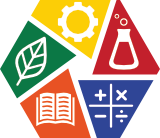A research study in the Journal of Leadership, Equity, and Research that describes integrating student play in project-based science units to enhance kindergarteners' understanding and ability to apply knowledge.
An investigation into the relationship between teachers' support of literacy development during science and their students' proficiency in scientific modeling during project-based units. Published in the international journal Education 3-13.
Published in the Journal of Science Teacher Education, this article examines the design features and design principles that both curriculum authors and teachers use to build engaging project-based learning environments and build both students' science knowledge and their social and emotional learning.
This piece in the journal Disciplinary and Interdisciplinary Science Education Research examines how the ML-PBL curriculum employed coherence, depth, and motivation to build students' knowledge-in-use through a project-based approach.
Responding to the challenges of virtual instruction during COVID-19, this research examined how teachers' modified the ML-PBL projects for virtual environments to support all students, with assistance from the ML-PBL design and professional learning team. Published in the Journal of Science Teacher Education.


 ML-PBL Curriculum Research Technical Report
ML-PBL Curriculum Research Technical Report